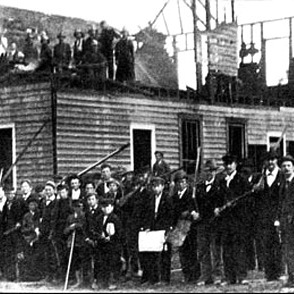Leaving aside the obvious way they aren’t at all the same — President and Senator Lyndon Johnson was a statesman while Governor Chris Christie most certainly is not — I found this distinction by Michael Zuckerman in The Atlantic to be particularly compelling and important to understand: “Americans may admire a politician who can play hardball, but it matters whether his victim is a political opponent or an innocent citizen.”
Now, with the caveat (which Zuckerman acknowledges too) that Congressman Johnson was definitely not a statesman and his election campaigns to the U.S. Senate included not just bullying but outright ballot-box stuffing, and keeping in mind Johnson’s advocacy for some unsavory policies along the way, on balance Johnson is most notable, in terms of results achieved, for his bullying of other Senators and members of Congress into accepting civil rights legislation, voting rights legislation, anti-poverty programs, Medicare, Medicaid, and much more. These helped millions and continue to do so today.
In general, Gov. Christie’s bullying has been of average people — including citizens asking reasonable questions at town hall meetings — and of far less powerful politicians in the state who aren’t really blocking him from achieving policy goals but are just insufficiently supportive of him personally. That’s not helping people. And his staff certainly hurt a lot of ordinary people (via hurricane relief withholding and bridge closures) in their quest to bully the mayors of Fort Lee and Hoboken for failing to support Christie’s re-election bid in a timely manner.
More from Zuckerman:
Many politicians accept the slings and arrows of the game because they accept the basic Machiavellian premise: “not only that politicians must do evil in the name of the public good,” as philosopher-turned-politician Michael Ignatieff has argued, “but also that they shouldn’t worry about it.” It’s the recognition that the political space is one of conflict, and one where morality is limited in some ways.
Even so, morality is not—and never should be—absent from the equation: The key stipulation, which Machiavelli took seriously, is “in the name of the public good.” In other words: You may have to do ruthless things to your political opponents, but you do those things because they help your constituents. It matters, in politics, who benefits.
Such is the case with LBJ’s strong-arm tactics. Yes, he deceived, threatened, and browbeat colleagues—”That man will twist your arm off at the shoulder and beat your head in with it,” Dixiecrat Senator Richard Russell, a staunch opponent of civil rights, famously observed. But we are, rightly, most tempted to forgive LBJ these trespasses when he undertook them on behalf of his constituents, especially disenfranchised black people in the South and poor people across America—when he was bullying, you might say, for a cause.
Americans crave a strong executive who gets things done. We’re a people of action who created a system designed to accomplish little, slowly. But Christie is doing it wrong.



 One of the reasons we have a month set aside to celebrate and remember Black History is because unfortunately the teaching of American History tends to leave it out the rest of the time (which is also why there’s never been a need for a White History Month). However, just because it isn’t taught doesn’t mean it’s unimportant or that it doesn’t count. Here’s one historical event I want to talk about today because — sad to say — I only just recently learned of it myself.
One of the reasons we have a month set aside to celebrate and remember Black History is because unfortunately the teaching of American History tends to leave it out the rest of the time (which is also why there’s never been a need for a White History Month). However, just because it isn’t taught doesn’t mean it’s unimportant or that it doesn’t count. Here’s one historical event I want to talk about today because — sad to say — I only just recently learned of it myself. 



